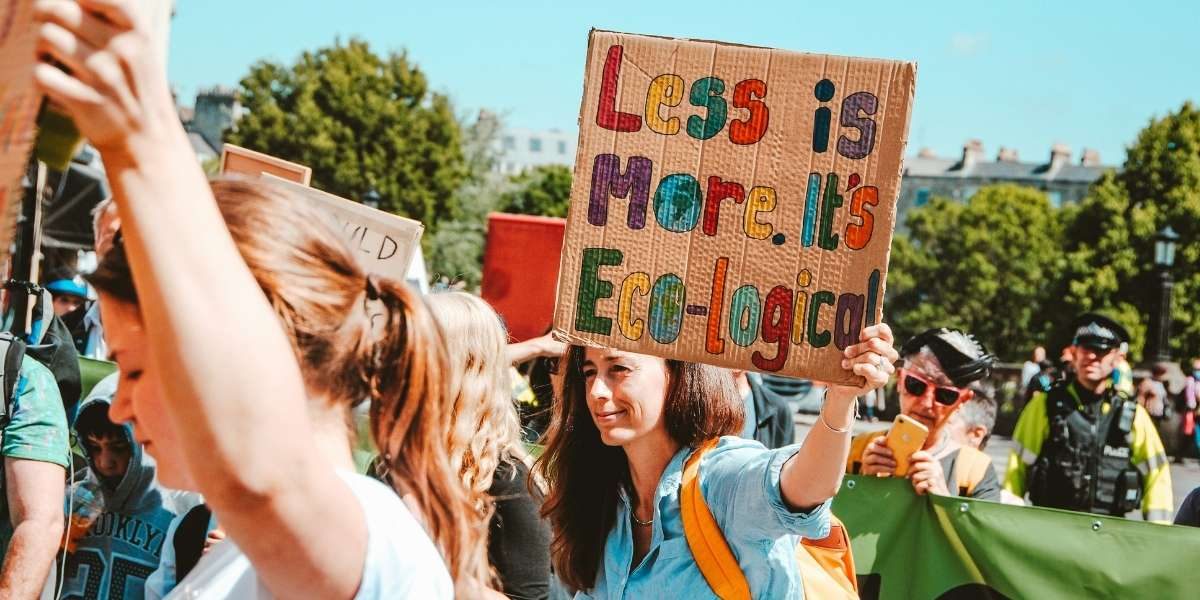Why Does Zero Waste Matter in Everyday Life?
Zero waste might sound like a trend, but for many, it’s a response to a growing need. Overflowing landfills, single-use plastics, and rising emissions have made people question their habits. In homes, schools, and local stores, the impact of waste shows up daily. Starting small can lead to meaningful change.
The core of zero waste is rethinking—not just recycling. It’s about creating systems that prevent waste from being created in the first place. For beginners, this idea can feel big, even intimidating. But those who adopt it find that starting the journey doesn’t mean living perfectly. It means becoming more aware.
Read Also: Bluetooth Earphones Care 101: Tips to Keep Your Sound Crisp and Clear
How Can Beginners Make Zero Waste Approachable?
Getting started doesn’t require a full lifestyle overhaul. Most people begin by replacing a single product or changing one habit. That could mean swapping plastic water bottles for reusable ones or keeping cloth shopping bags in the car. These shifts feel small but add up quickly.
The first goal is to reduce what comes in. Before a purchase, it helps to pause and ask: Is this reusable? Will it last? Does it have minimal packaging? People are often surprised how much less they bring home once they start asking those questions.
At home, food waste becomes a clear focus. Learning to store produce properly, using leftovers creatively, and composting scraps can all support a zero waste kitchen. It’s a shift in mindset, turning waste into a resource rather than a burden.
What Role Do Habits Play in Creating a Zero Waste Lifestyle?
Habits are the backbone of any lifestyle change. With zero waste, it’s the small daily routines that matter most. Making coffee at home with a reusable filter, saying no to plastic straws, or carrying a lunchbox to work—all of these save money and reduce waste.
Routine is powerful. Once habits form, they no longer feel like extra effort. People often share that they begin noticing waste in places they never did before—takeout containers, shipping materials, gift wrapping. This awareness leads to smarter choices and stronger habits.
A helpful tip for beginners is to focus on one room at a time. The bathroom might be a place to start with shampoo bars or refillable soap. The kitchen could lead to beeswax wraps instead of plastic film. This room-by-room approach breaks the process into parts that feel manageable.
Can Zero Waste Be Affordable for the Average Household?
There’s a common belief that zero waste living is expensive, but that’s not always true. Many find they actually spend less once they stop buying disposables. Products that last—metal razors, silicone baking mats, glass storage jars—replace years of repeated purchases.
Secondhand shopping also plays a role. Thrift stores offer containers, clothes, and kitchenware that reduce demand for new production. Borrowing, sharing, and repairing are part of the culture, building both savings and community ties.
Local refill shops and farmers’ markets are becoming more common, offering goods without packaging. While some items may cost more upfront, the long-term value makes them worth it for many households. Even simple acts like buying in bulk can reduce both waste and costs.
How Does Zero Waste Living Affect Community and Culture?
When people shift toward zero waste, the effects ripple outward. Families talk more about sustainability. Friends share new habits. Local businesses respond to changing customer values. Some cafes now offer discounts for reusable cups; others replace plastic straws with compostable ones.
Schools and workplaces also join the conversation. Employees bring lunch in reusable containers. Teachers lead waste-free projects. Over time, these collective efforts shape a culture of awareness and action.
In cities like Nashville, community initiatives offer compost drop-offs, tool libraries, and fix-it events where people learn to repair rather than replace. These programs make zero waste more accessible, especially to those who don’t know where to begin. They also bring people together around a shared purpose.
Read Also: Health and Wellness Trends: The Future of Well-Being
Is Perfection Necessary for Zero Waste to Work?
Zero waste isn’t about perfection. It’s about intention. Everyone creates some waste, especially in a system designed around convenience and disposability. What matters is not getting everything right, but trying.
People who succeed in this lifestyle long-term often say the same thing: give yourself permission to learn. One forgotten grocery bag or plastic cup doesn’t undo your efforts. What counts is how you adjust and keep going.
By letting go of pressure and focusing on progress, beginners find that zero waste becomes less about rules and more about values. Over time, those values shape how they eat, shop, and live.














